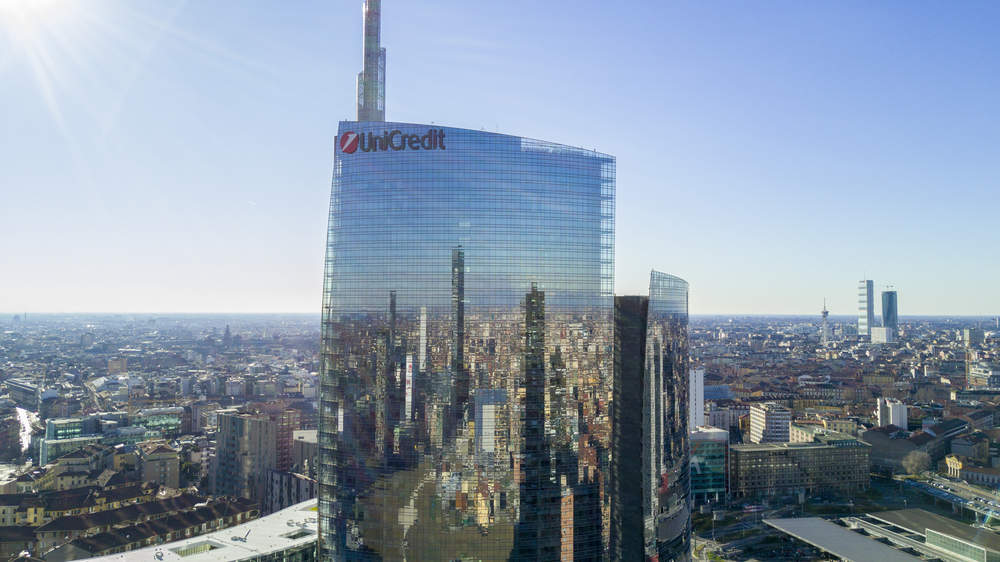Jean Pierre Mustier, UniCredit CEO can toast a very satisfactory first year in office.
UniCredit has reported net profit of €945m in the second quarter – way ahead of analyst forecasts.
For the first half, UniCredit reported net profit of €1.9bn, up 40.2% year-on-year.
In post since mid July 2016, Mustier reported a sharp drop in non-performing loans, an increase in revenue and progress in advancing the bank’s Transform 2019 business plan, of which more later.
Mustier is quite the toast of the market: the UniCredit share price rose to almost €18, almost double the price when he was appointed, giving a market cap of $46bn.
UniCredit remains very much a work in progress. When the crisis kicked off, UniCredit was the world’s 13th-largest bank by market cap, worth around $93bn in 2017.

US Tariffs are shifting - will you react or anticipate?
Don’t let policy changes catch you off guard. Stay proactive with real-time data and expert analysis.
By GlobalDataH1 2017 highlights include:
- UniCredit’s cost-income ratio fell by 3.2 percentage points y-o-y to 56.6%
- Cost-cutting initiatives are on target; operating expenses fell by 3.6% y-o-y;
- The bank’s CEE operations reported first half net income of €827m up 8%
- Loan-loss provisions in Q2 fell by 36% y-o-y to €564m;
- Group net interest income remained resilient while the bank remains on target to hit 2018/2019 fees targets, and
- UniCredit’s CETier 1 ratio rose to 12.8% from 11.45% at the end of the first quarter.
Analysts are now more upbeat that Mustier can hit his target of UniCredit earning annual net income of €4.7bn by 2019.
To say Mustier has had a busy year is a major understatement. First off, there was the little matter of a €13bn rights issue to get away successfully.
UniCredit had raised €7.5bn of fresh capital as recently as 2012; the share price was trading at little over book-value when he took charge.
In the 12 months prior to Mustier’s appointment, the UniCredit share price fell by almost 70%.
Next up was an acceleration of asset sales including the disposal of a portfolio of bad loans worth around €17bn.
And then there was Poland.
While its Polish branch network has inched down from a peak of 1,075 branches just after the crisis to around 920 outlets in 2016, Pekao is a major player in Poland with a market share of around 10.2% of sector assets, behind PKO and ahead of Commerzbank’s mBank.
Mustier’s explanation for the Polish sale was simple-he achieved a good price, about 1.4 times book value.
Branch right-sizing is playing a key part in the bank’s Transform 2019 turnaround plan. From a peak of 2,861 branches across 16 markets in CEE in 2011, UniCredit’s network in the region fell to 1,764 across 10 markets in the first half of this year.
In Western Europe, 300 outlets have been axed in the past 12 months, reducing the network to 3,345 in the region.
Group wide, UniCredit’s branch network now totals 5,100; a decade ago UniCredit operated 10,250 branches.
Further branch closures are planned in the next 18 months to reduced the network to about 4,500 units.
Mustier has targeted a further reduction of 14,000 FTEs by 2019 to reduce headcount to 130,000; post the crisis UniCredit employed almost 180,000.
In the digital sector, UniCredit had considerable scope to catch up with its international peers but is making progress.
Digital banking highlights include:
- Launching Apple Pay in Italy, enabling 6 million UniCredit cardholders to use the mobile service;
- Online banking users in its CEE unit increased to 38% in the first half of 2017 from 35% a year earlier, leaving huge scope for improvement to match Western European markets;
- Regular mobile banking customer numbers rose to 25% in H117 from 20% a year ago, again highlighting much room for improvement









